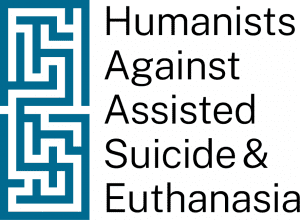Former Archbishop of Canterbury Lord Carey voiced his support for euthanasia last week. In a submission to a UK parliamentary inquiry on assisted dying, he called it an ‘act of great generosity, kindness and human love’.
His intervention wasn’t unexpected. Over the past decade, Carey has emerged as one of a small band of religious figures who has dropped the traditional Christian opposition to suicide. He told the Health Select Committee’s inquiry that ‘we must be willing to recognise the limits of palliative care and how much harm is inflicted by the UK’s existing laws [prohibiting assisted suicide]’. He also called on parliament to ‘debate’ the issue.
But proponents of euthanasia do not want debate. They want to engage in emotional blackmail. They want to talk, as Carey did last week, of ‘lonely’ deaths, of people’s ‘immense suffering’, and of ‘grieving relatives charged with murder’ for assisting suicides (which, to my knowledge, has never actually happened). They want to bludgeon listeners into submission with heart-rending tales of human pain.
Carey and Co’s claims, which are typical of the pro-euthanasia movement, don’t stand up to scrutiny. Carey says that legalising assisted suicide will ‘bring compassion to dying’. Yet in both the Netherlands and Canada, where euthanasia and assisted suicide are legal, people still suffer thanks to the poor provision of palliative care. In the Netherlands, research shows that over 40 per cent of patients endure unalleviated pain and restlessness before death. And in Canada, palliative care remains in a dire state, despite the legalisation of euthanasia and assisted suicide in 2016.
Carey also claims that people are forced into ‘DIY suicides’ because there is no option of a legal assisted death. This claim comes from Dignity in Dying, the largest assisted-suicide advocacy group in the UK. It’s also baseless.
It is true that people who are diagnosed with severe, life-limiting illnesses have a higher suicide rate than the general population. But it is not true that legalising assisted suicide and / or euthanasia reduces the rate of non-assisted suicides among those nearing death, or indeed any other group. One study in the US found that states in which assisted dying is legal experienced an ‘increased rate of total suicides relative to other states and no decrease in non-assisted suicides’. There is also no evidence that suicide numbers have fallen in Canada, the Netherlands or Belgium, where assisted suicide is legal.
Carey appears to be morally confused. He seems puzzled by the fact that people have ‘the right to refuse life-sustaining treatment’ but do not have the right to access ‘prescribed life-ending medication that would allow them to die in peace’.
Here he elides two separate moral positions. People have a right to refuse life-sustaining treatment because we as a society honour individuals’ freedom to say what can and can’t be done to their bodies. This is not about respecting their ‘right to die’ – it is about respecting their autonomy. Prescribing deadly poison to end an individual’s life is very different. This is prohibited because we consider it immoral for one person to kill another – that is, for one person to deprive another of their autonomy.
Even more bizarrely, Carey claims that ‘there is nothing in Holy Writ, or in the 2,000 years of Christian teaching, that bore directly on this modern problem’ of older people living with serious or terminal conditions. This ‘modern problem’, he claims, has ‘largely [been] created by the success of modern science and improved healthcare’.
Leaving aside the obvious fact that people still experienced suffering before death in the past, Christian teaching clearly does address the issue of suicide. Saint Augustine (354-430) said that suicide violates the divine law against killing and the command to love thy neighbour as thyself. If you are willing to kill yourself, you are willing to kill your neighbour, he argued. Later, Thomas Aquinas (1225-74) argued that because people are part of the community, an individual who kills himself injures the community, too.
In a letter to The Times, Carey writes of the ‘unloving nature of our law’, which forces dying people to make ‘drastic decisions’. But the law is not meant to be loving or unloving. It is meant to express the value we, as a society, place on all human lives. It expresses our determination to protect everyone from wrongful killing, even at an individual’s own hand. To legalise assisted suicide would be to legitimate killing, sending the message that some lives are just not worth living.
Carey claims that the examples of ‘Oregon, California, Australia and New Zealand’ all demonstrate ‘that laws can be passed to give people choice over their deaths, with appropriate safeguards’. He conveniently ignores the case of Canada, where people have sought euthanasia to escape poverty and homelessness, and the case of the Netherlands, where people can be euthanised for having autism-spectrum disorder and other intellectual disabilities. His silence on these gruesome facts is damning.
Let’s hope that our elected parliamentarians prove to be wiser than this unelected bishop.







 What do the public understand assisted dying to mean? We are raising money to conduct a poll to find out.
What do the public understand assisted dying to mean? We are raising money to conduct a poll to find out.